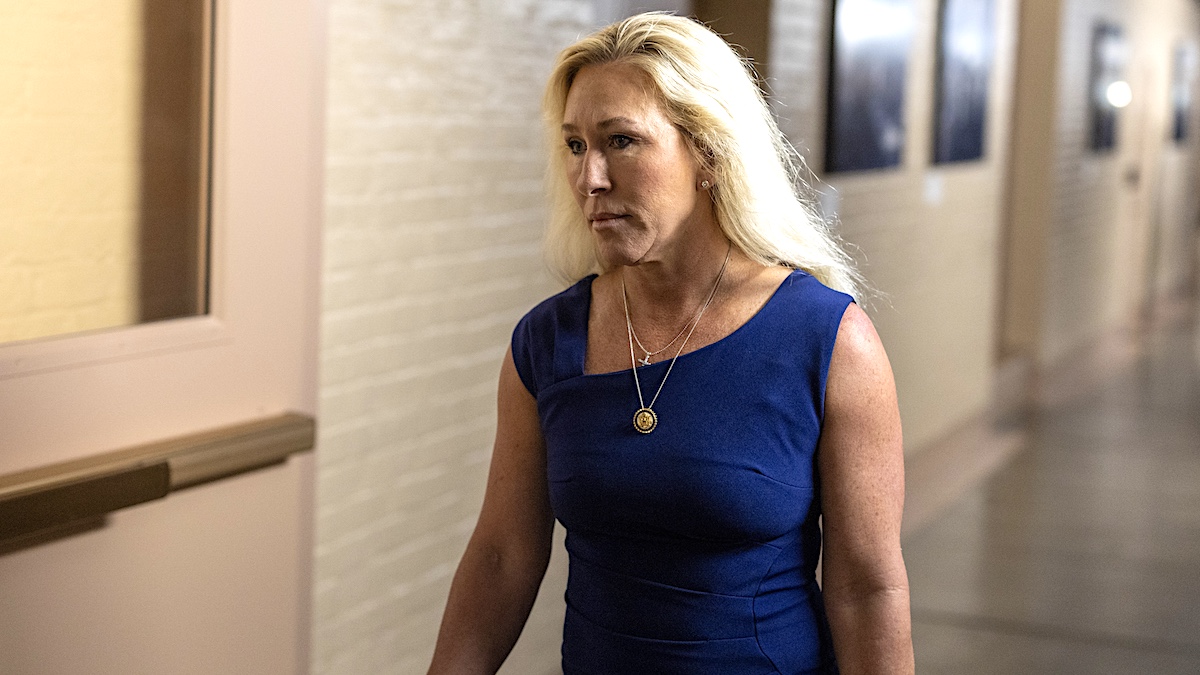
Marjorie Taylor Greene‘s comment section blew up after the Georgia Representative shared a video on X from someone in Illinois complaining about the high cost of living eight months into Trump’s second term, with Greene’s Republican Party in control of all three branches of the government.
The moving video, originally shared by Wall Street Apes, features a tearful woman giving a first-person account of her struggles. Despite working overtime, she says she’s forced to choose between buying food and putting gas in her car. “I’m wondering if anybody else feels like they’re drowning and can’t get out,” she confesses.
“This is absolutely UNACCEPTABLE”
You voted for this you hypocrite
— Mario (@PawlowskiMario) August 16, 2025
Greene captioned her post, “I’m seeing videos like this routinely. The hard working middle class is becoming the working poor. This is absolutely UNACCEPTABLE.”
Comments quickly appeared in Greene’s comments, like, “Joe Biden did this.” And then, “Why didn’t they cry like this when Joe Biden was president? We were totally worse off.” Others, however, noted, “You voted for this you hypocrite.”
The “vote” referred to in that response was Greene’s vote on President Donald Trump‘s “Big Beautiful Bill.” After voting “yes,” Greene later stated that she hadn’t fully read the legislation. She subsequently reversed her position on a key section related to artificial intelligence and said she would vote against the bill if it were to come before the House again in its current form.
The Senate, in a separate vote, removed the controversial AI provision to which Greene and others objected. Following the Senate’s amendment, the revised bill returned to the House, where it was passed and then signed into law by President Trump on July 4, 2025.
Biden and Trump’s economies compared
Critics argue that the bill Greene supported shifts resources away from working families and concentrates them in the hands of the wealthy. Analyses indicate that low-income families are likely to lose ground and face tighter budgets, while wealthier Americans stand to reap substantial financial rewards. In other words, the very people already struggling could be left worse off, while those at the top benefit the most.
The legislation slashes support for Medicaid, SNAP, and other essential programs, leaving millions vulnerable. Labor groups and educators warn that these cuts will hit working-class and rural communities especially hard; for example, rural school districts lack the tax base to compensate for lost education funding.
Beyond direct cuts, critics note that the bill’s provisions exacerbate broader economic pressures. People’s Tribune warns of inflation and higher interest rates driven by mounting deficits, which would make essentials—like food, loans, and housing—even less affordable for working families.
At the same time, from many points of view, claims that things “were worse” under Biden don’t fully stand up to scrutiny. Eight months into Trump’s second term, the economy looks very different from the one Biden left behind. During Biden’s presidency, the U.S. experienced robust job growth and rising productivity, supported by major investments in infrastructure and technology.
Persistent inflation weighed on everyday Americans until it finally began to ease toward the end of Biden’s presidency. But Biden inherited an economy already experiencing rising inflation, which had accelerated during the final months of the Trump administration and the COVID‑19 recovery.
Critics argue that Trump’s unpredictable, CEO-style management has created uncertainty for businesses and investors, raising questions about whether his short-term policies will undermine the stability that Biden’s programs aimed to build. And all the while, Greene has for the most part been cheerleading from the sidelines.







